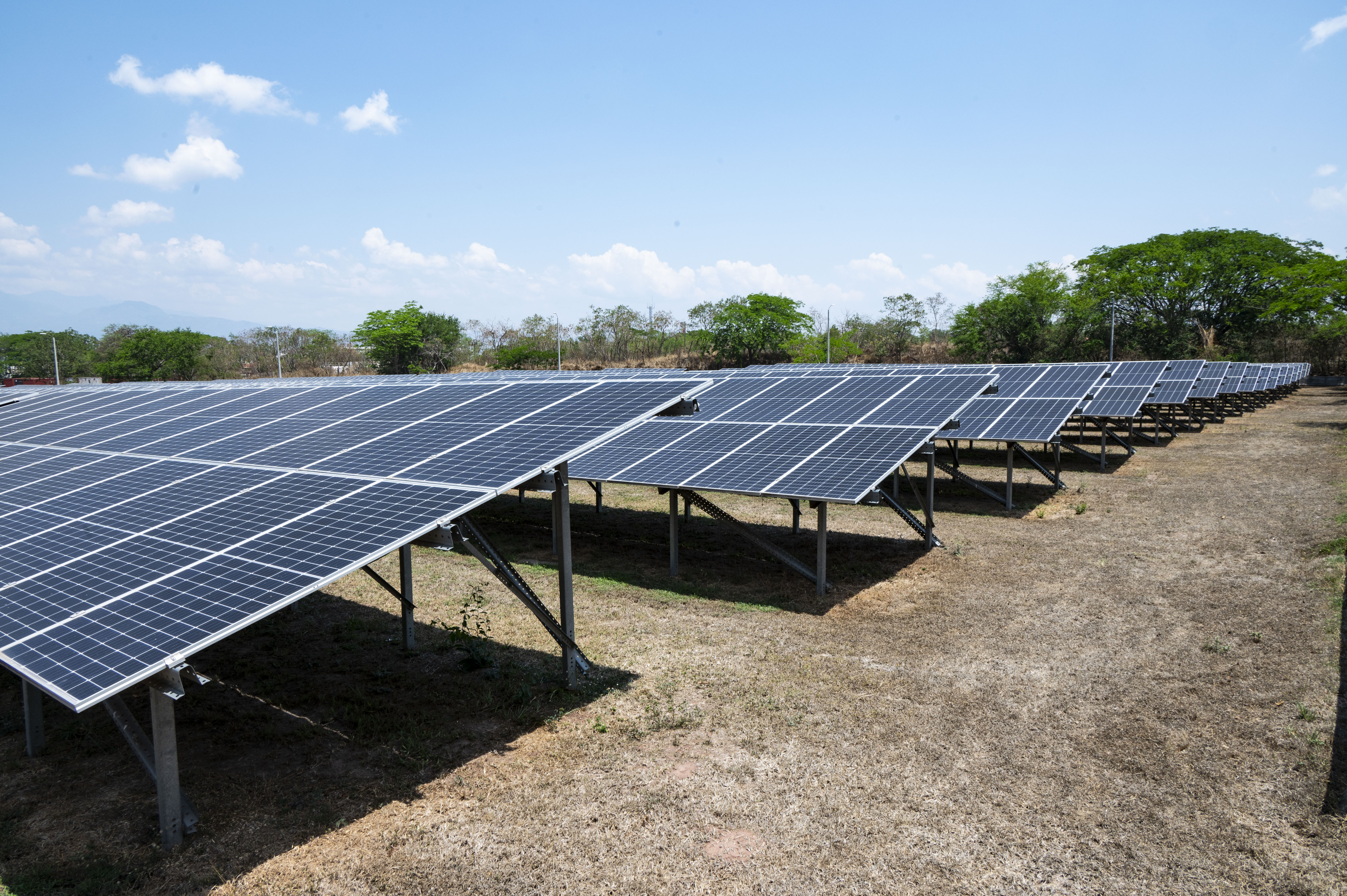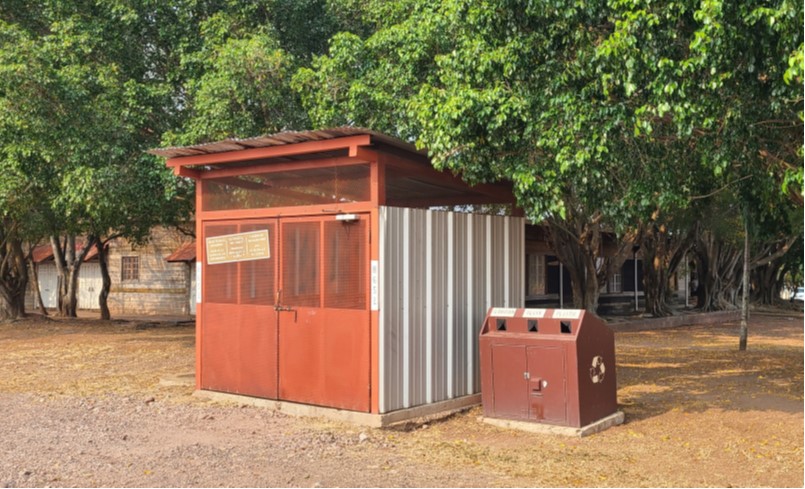
At Soto Cano Air Base, Honduras, our personnel are committed to being good environmental stewards by making it an important practice to protect the natural environment through conservation and sustainable programs that fosters healthy habitats and ecosystem resilience.
Our base's effective environmental initiatives for recycling, pollution prevention, restoration, composting, and clean energy promote a truly cross-functional approach to environmental stewardship.
Soto Cano Air Base has been a part of Honduras for over 40 years, and we will continue to safeguard our environment in this remarkably high biodiverse country for future generations to come.
Solar Farm
Our base is dedicated to clean energy with 203 solar panels installed covering over 6 acres. Annually, these solar panels produce enough solar energy to cover 14% of the electricity needed and saves the base over $1 million in fuel.
Using clean energy also reduces greenhouse gas emissions and preserves local air quality.
Recycling
Recycling at Soto Cano Air Base is an important process where the hundreds of personnel working and living on base bring their recyclable wastes, such as plastic, cardboard, paper, aluminum, electronics and glass to numerous collection points available throughout the base. These materials are diverted from the landfill to be reprocessed into new products.
Recycling benefits our community, the economy, and the environment.

Wastewater Treatment Plant
The Soto Cano Air Base Wastewater Treatment Plant is a major element of water pollution control and protecting the environment in Honduras. The plant removes impurities from the wastewater making the water a better quality then previously and returns the cleaner water back into the natural bodies of water surrounding the base.
Soto Cano Air Base operates Wastewater Treatment Plants to control water pollution in local waterways and protect the environment in Honduras. The plant removes impurities from wastewater and generates effluent water that is a better water quality compared to upstream waterways.
Our community’s health is reliant on this treatment process and it helps preserves the ecosystems and farmlands that are around the base that depend on this cleaner water.
Compost
Composting t At Soto Cano Air Base’s dining facility that serves over 700 people three times a day, seven days a week, the food waste produced is recycled and provided to the base’s nursery allowing for the plants to thrive.
Composting reduces landfill waste and methane gas emissions and turns food waste into a valuable soil enhancer that helps plants. The Soto Cano Air Base dining facility serves over 700 people three times a day, seven days a week — the generated food waste is processed in the composting site and finished compost is used internally by the roads and grounds services, as well as the Honduran Armed Forces.
Soil Conservation
Soil conservation helps soil moisture in low rainfall areas and during high rainfall areas it reduces the soil loss.
The Hurricanes, ETA and IOTA, greatly damaged the riverbed of the Canquigüe River, which crosses Soto Cano Air Base. U.S. Army Support Activity is upgrading bridges and repairing the riverbed to prevent soil erosion, to protect the surrounding infrastructure, as well as conserve soil fertility and moisture.
This huge infrastructure project costing $8 million will keep personnel safe and improve soil conservation, habitat preservation, and biodiversity reducing risks from other natural hazards and flooding.

New Water Distribution Plant
As a part of the continued infrastructure upgrades, U.S. Army Support Activity is installing a new water treatment plant and distribution system that will greatly reduce water losses and will provide potable water throughout Soto Cano Air Base by summer of 2024. This new water treatment plant is upgrading a 30-year-old non-potable treatment and water distribution system.
It will also be the first-time Soto Cano Air Base will have certified drinkable water available to the over 600 U.S. military personnel, local nationals, contractors and hundreds of Honduran military members and collaborators that work and live on base.